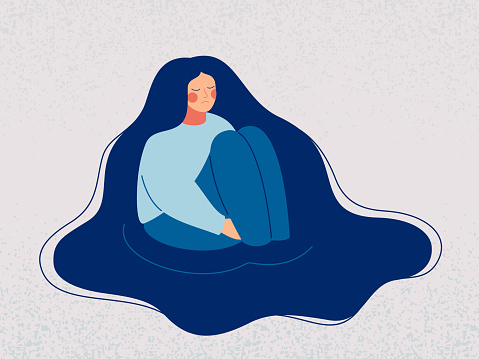
The Government has faced criticism for the way the pandemic has been handled, with multiple lockdowns, changeable tiers, and a surprise fourth tier just in time for Christmas among the highlights.
While the nature of a pandemic is inherently uncertain, the constant changing of restrictions could exacerbate what is already a very trying time.
Jennifer Nadel, Co-Director of Compassion in Politics tells us: ‘From the time the virus first emerged in China, the government’s approach to handling this pandemic has bred uncertainty, confusion, and powerlessness – feelings which are known to trigger anxiety and depression.
‘The constant oscillations, invention of new rules imposed at the eleventh hour, and the frequent switch from bombastic optimism to despair has not only created a sense of chaos but has taken our emotions on an exhausting rollercoaster ride.’
She adds: ‘Going forwards we urge the government to prioritse the public’s mental health by showing more humility in their communications, including mental health experts in their deliberations, and engaging opposition leaders in decision-making.’
Psychotherapist Noel McDermott agrees that the uncertainty and changes to the restrictions are ‘associated with higher levels of anxiety and depression, both responses to stress’.

He adds: ‘The fact that we have repeated experiences of lockdown means we are likely to have an exaggerated emotional and psychological response as repetition of stressful events increases the psychological impact, even if the repetition is not a severe as the original event.
‘It’s because we have the previous behavioural and neurological priming to make us react in a more exaggerated way, the danger signals are amplified independent of severity.’
When asked about potential long-term effects that lockdown and tier rule changes could have on our mental health, Noel says some will thrive while others will have learned to lean on newly-learned and flawed coping mechanisms.
He says: ‘Unhealthy coping mechanisms that may have subsided will emerge and make people more vulnerable to those again in the future: substance misuse, alcohol abuse, aggression and violence, eating disorders etc.
‘In that framing we will see an increase in the belief in conspiracy theories, anti-vax movements, civil disobedience. Again this will be in those vulnerable to this thinking previously.

‘Conversely a significant group of people will psychologically thrive as they move into positive psychology thinking, growth mindsets and frame the experience as educational and an opportunity to grow.’
For those looking to guard their mental health as the pandemic drags on, Noel recommends: ‘When we can’t change reality we have to change ourselves.
‘Key is selfcare and responding to oneself and others in a compassionate way.
‘Normalise your difficult feelings as appropriate responses to a difficult reality. Don’t imagine that there is something wrong with you.
‘Ask yourself what positive life lessons can you take from this situation. Search for the meaning in the stress.
‘Let go of your plans and live more in the here and now. Nothing is permanent, especially not the current situation.
‘Focus on what you have not what you don’t, gratitude is a great resource. Focus on your creativity to make the best of the situation.’
To talk about mental health in an open, judgement-free space, join our Facebook group, Mentally Yours.
Need support? Contact the Samaritans
For emotional support you can call the Samaritans 24-hour helpline on 116 123, email [email protected], visit a Samaritans branch in person or go to the Samaritans website.
Do you have a story to share?
Get in touch by emailing [email protected]
Source: Read Full Article
